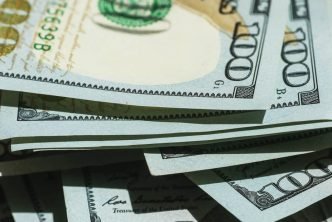Gold has been a valuable asset for centuries, admired for its beauty and coveted for its store of value.
Whether you’re a seasoned investor or a newcomer to the world of precious metals, you’ve probably wondered when is the best time to buy gold bullion. The answer to this question is multifaceted and depends on various factors, including economic conditions, market sentiment, and personal financial goals.
In this blog post, we’ll explore key considerations to help you navigate the market and make informed decisions about buying gold bullion.
Table of Contents
Understanding the Factors Influencing Gold Prices
Before delving into the timing of your gold bullion purchase, it’s crucial to grasp the factors that drive gold prices. Gold is often seen as a safe-haven asset, meaning that its value tends to rise during times of economic uncertainty. Some of the main factors influencing gold prices include:
- Economic Conditions: When the economy is in turmoil, investors often flock to gold as a hedge against inflation and currency devaluation. Economic crises, such as the 2008 financial meltdown and the COVID-19 pandemic, have historically led to surges in gold prices.
- Interest Rates: Gold has an inverse relationship with interest rates. When interest rates are low, the opportunity cost of holding gold (which doesn’t pay interest or dividends) is reduced, making gold more attractive to investors. Conversely, rising interest rates can put downward pressure on gold prices.
- Currency Strength: Gold is priced in U.S. dollars, so changes in the strength of the dollar can have a significant impact on gold prices. A weaker dollar often leads to higher gold prices, as it takes more dollars to buy the same amount of gold.
- Geopolitical Events: Geopolitical tensions and conflicts can create uncertainty in the financial markets, leading investors to seek the safety of gold. News of geopolitical crises can cause sudden spikes in gold prices.
- Supply and Demand: Like any commodity, gold is subject to the laws of supply and demand. Factors such as mining production, central bank purchases, and jewelry demand can influence the supply side of the equation.
Now that you have a basic understanding of the factors affecting gold prices, let’s explore the best time to buy gold bullion based on these factors.
Timing the Gold Market
- During Economic Uncertainty: As mentioned earlier, gold is often viewed as a haven during economic uncertainty. If you anticipate economic turbulence, such as a recession or financial crisis, consider buying gold bullion. Keep an eye on economic indicators and news that could signal a downturn.
- When Interest Rates are Low: Historically, gold prices have tended to rise when interest rates are low. If central banks are keeping interest rates near zero or engaging in monetary easing, this can be a favorable environment for gold investments.
- During Currency Weakness: If you believe a particular currency, such as the U.S. dollar, is weakening, it can be an excellent time to buy gold. A weaker currency can drive up the price of gold in that currency, potentially offering an opportunity for gains.
- Geopolitical Turmoil: Geopolitical events can create sudden spikes in gold prices. While it’s impossible to predict when such events will occur, keeping an eye on global news and being prepared to act swiftly can be advantageous.
- Long-Term Diversification: Timing the market ideally is challenging, even for experienced investors. Instead of predicting short-term fluctuations, consider a long-term strategy of gradually accumulating gold bullion to diversify your portfolio and reduce risk.
Practical Considerations When Buying Gold Bullion
Once you’ve decided that it’s the right time to buy gold bullion, there are some practical considerations to keep in mind:
- Buy from Reputable Sources: Ensure you purchase gold bullion from reputable dealers or financial institutions. Look for products with recognized hallmarks and certifications to guarantee their authenticity.
- Consider Storage Options: Decide whether you will store your gold bullion at home, in a bank vault, or with a reputable storage provider. Each option has its pros and cons, so weigh them carefully.
- Understand Costs: Besides the purchase price, be aware of any transaction fees, storage fees, or insurance costs associated with your gold bullion investment.
- Stay Informed: Continuously monitor economic news and market conditions to adjust your investment strategy as needed. Consider consulting with a financial advisor or expert in precious metals for guidance.
Final Thoughts
The best time to buy gold bullion depends on a variety of factors, including economic conditions, interest rates, currency strength, geopolitical events, and your own financial goals. Rather than trying to time the market perfectly, focus on a long-term strategy that includes diversification and gradual accumulation of gold bullion. By staying informed and making informed decisions, you can navigate the market with confidence and benefit from the enduring allure of gold as a valuable asset.





